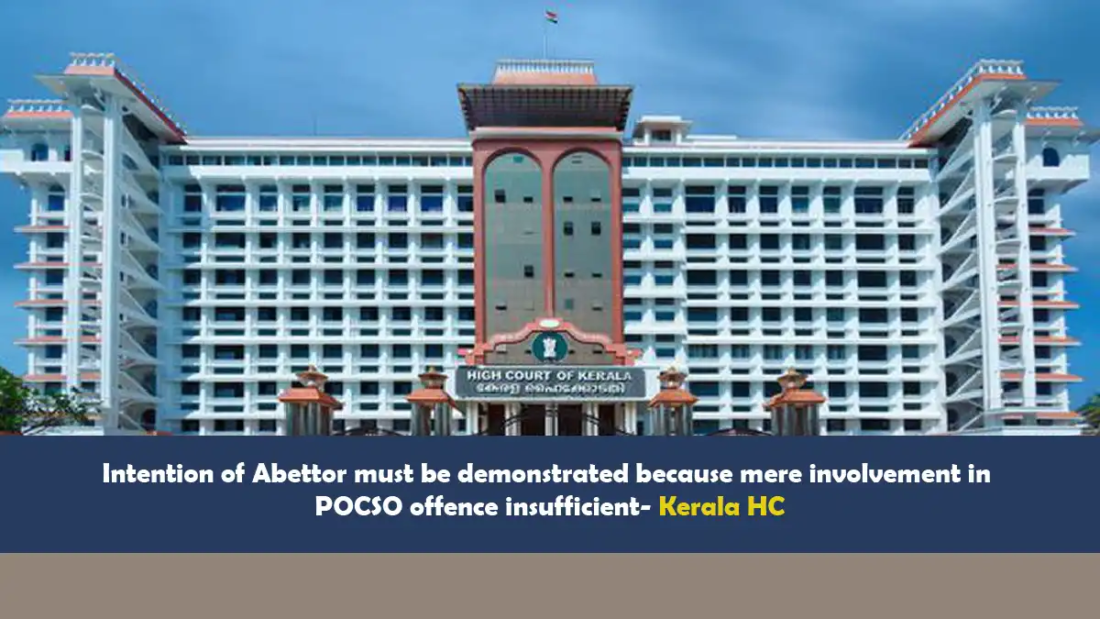Facts:
The petitioner was the second accused in a matter pending before the Fast Track Special Court. He filed application seeking discharge from the charges, but the Special Judge dismissed the petition on December 14, 2021. Challenging this order, the petitioner filed a revision petition under Section 397 read with Section 401 of the Code of Criminal Procedure, 1973. The alleged offenses in the final report were punishable under Sections 363, 368, and 376(2)(n) read with Section 34 of the Indian Penal Code, 1860, and Sections 4 read with 3 and 6 read with 5(l) of the Protection of Children from Sexual Offences Act, 2012 (POCSO Act).
Contention of the Petitioner:
The petitioner contended that he should not be held answerable for the charges of kidnapping and rape, asserting that the Special Judge incorrectly concluded that he was liable for abetment under Section 17 of the POCSO Act. The petitioner’s counsel argued that the final report did not allege such an offense and that the evidence presented by the prosecution did not substantiate the charge. The petitioner was a friend of the victim and helped her find a flat upon her request, and his actions, such as dropping the victim and the first accused near the flat and purchasing a mobile phone for her, did not amount to abetment of kidnapping and sexual assault.
Contention of the Respondent:
The learned Public Prosecutor argued that the petitioner, knowing the victim was a minor, facilitated her stay in a flat with the first accused, thereby aiding the commission of sexual offenses. The prosecutor emphasized that the victim’s statement, along with testimony from charge witnesses Nos. 7 and 8, established the petitioner’s complicity in facilitating these offenses, making him answerable for abetment.
Court’s Observation:
The court noted that the petitioner was a friend of the victim and had helped her rent a flat where the alleged offenses occurred. The victim’s statement and those of charge witnesses Nos. 7 and 8 indicated that the petitioner was involved in finding the flat and was present when the first accused was also there. The court emphasized that under Section 16 of the POCSO Act, abetment includes intentionally aiding the commission of an act, and this must be inferred from the circumstances. The court also referred to Section 29 of the POCSO Act, which creates a legal presumption of guilt for those prosecuted under certain sections of the Act unless proven otherwise.
The Court observed that “The said Explanation (provided under Section 16) does not say what would or would not amount to “intentionally aids”. It only explains what is meant by aiding. But when the clause thirdly couched with ‘intentionally’ an act which merely amounts to aiding the commission of an offence is not abetment. The aiding must have been with the intention that such an offence would be facilitated. Then only the ‘aiding’ will snow-ball into “intentionally aiding”. Thus, in order to constitute abetment, the abettor must be shown to have “intentionally aided” the commission of the crime. Mere proof that the crime charged could not have been committed without the interposition of the alleged abettor is not enough compliance with the requirements of Section 16 of the POCSO Act. And intention being a condition of mind locked in the bosom of the concerned, necessarily should be a matter for inference from the attending circumstances. The circumstance has to be assessed, discerned and understood with due regard to the usual human conduct.”
Court’s Decision:
The court held that the trial court was correct in determining that a charge under Section 17 of the POCSO Act was applicable to the petitioner. The materials provided by the prosecution suggested the petitioner’s involvement in facilitating the victim’s stay in the flat with the first accused, invoking the presumption under Section 29 of the POCSO Act. The court concluded that the non-mentioning of the specific offense in the final report did not prevent the trial court from framing a charge for that offense. Consequently, the revision petition was dismissed, and the impugned order was upheld.
 Cart is empty
Cart is empty 

